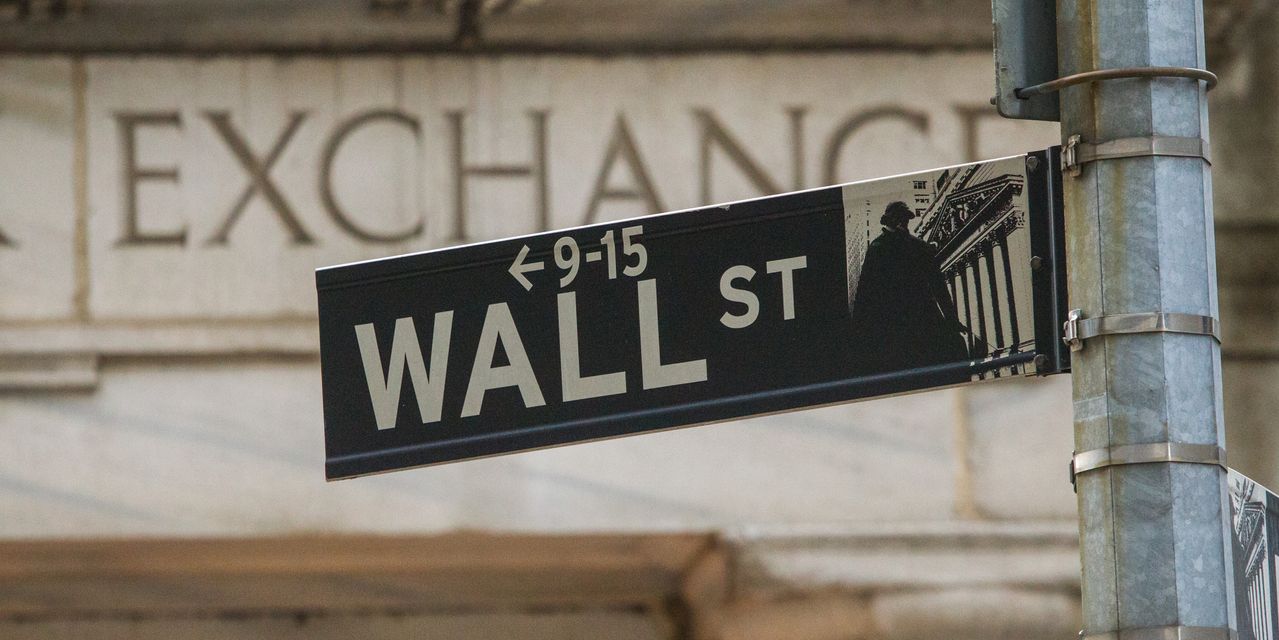U.S. stocks traded slightly higher Friday afternoon, after a downbeat, holiday-shortened week which has been plagued by worries over rising yields and oil prices.
What’s happening
-
The Dow Jones Industrial Average
DJIA
rose almost 78 points, or 0.2%, to 34,578. -
The S&P 500
SPX
was up 12 points, or 0.3%, at 4,463. -
The Nasdaq Composite
COMP
added 42 points, or 0.3%, to trade at 13,791.
For the week, the Dow was on pace to fall 0.7% the S&P was on track to decline 1.2% and the Nasdaq Composite was heading for a 1.7% drop, according to FactSet data, at last check.
What’s driving markets
Stocks were slightly higher Friday, with the S&P 500 on track to snap a three-day losing streak that puts the index on course for a weekly drop ahead of next week’s August inflation report.
The market lately wants to see the U.S. economy doing “good but not great,” because if it’s too strong, the Federal Reserve may have to become more aggressive raising interest rates to bring down inflation, said Scott Wren, senior global market strategist, Wells Fargo Investment Institute, in a phone interview Friday. The Fed has wanted the economy to slow to “put some downward pressure on core inflation,” he said.
Several Federal Reserve officials on Thursday made it clear there’s unlikely to be a rate hike in September, though some, like Dallas Fed President Lorie Logan after the market close, suggested further increases may need to come later.
New York Fed President John Williams on Thursday sounded content with the current level of interest rates, but said he would be watching data closely to make sure the level of rates is high enough to keep inflation moving down. Chicago Fed President Austan Goolsbee suggested the Fed is almost done raising interest rates to quell inflation.
A surprise decline in weekly jobless benefit claims to mid-February levels, was reported Thursday also, a day after a surprisingly strong reading of a services sector activity gauge unsettled investors hoping for a gradual deceleration in the U.S. economy to stomp out inflation.
“In recent conversations with institutional investors, it is clear to us that investors are incrementally nervous. Foremost is their concern that economic momentum has been improving at a pace that might warrant the Fed to have to increase the path of hikes,” said Tom Lee, head of research at Fundstrat, in a note.
Stocks have been sensitive to moves in Treasury yields, falling as the rate on the 10-year note
BX:TMUBMUSD10Y
pushed back above 4.3% earlier this week. Equities were finding some relief Friday, with the 10-year yield trading about flat at around 4.26%, FactSet data show, at last check.
But the stock market weakness that began in August comes after a strong run for equities and is in line with seasonal patterns.
“It feels to me like this is a pretty predictable pattern of just churning. You’ve got this weak seasonal period, you’ve got this lack of data. I think this is probably pretty healthy, pretty predictable,” said Mark Hackett, chief of investment research at Nationwide, in an interview.
Historically, a strong run into August sets the market up for gains into the end of the year, Hackett said, a pattern he sees as likely to hold true given the continued strength of the consumer.
Helping to provide stability, Apple Inc.
AAPL,
stock was trading more than 1% higher on Friday, but remained down around 5% so far this week after falling on concerns over Chinese government restrictions to iPhone use.
“When a tech giant like Apple, with a market cap of nearly $2.8 trillion sneezes, the whole market catches a cold,” said Ipek Ozkardeskaya, senior analyst at Swissquote Bank.
While the S&P 500 is down 1% so far this week, the index closed Thursday just 3% from its 2023 closing high at the end of July, according to Dow Jones Market Data.
“So far the market is hanging in here pretty well,” as it’s still leaning towards the notion of “a soft landing” for the U.S. economy or the idea that if the U.S. does fall into a recession, the downturn would be “mild,” said Wells Fargo’s Wren.
Meanwhile, investors will next week get a reading on inflation in August , with data from the consumer-price index scheduled to be released on Wednesday.
Companies in focus
-
Kroger Co.
KR,
+4.12%
KR,
+4.12% ,
rose 3.9% Friday, as investors weighed several developments, including the grocer’s downbeat fiscal second-quarter earnings report, a billion-dollar-plus opioid settlement and an agreement to sell more than 400 stores in an effort to complete its acquisition of Albertsons Companies Inc.
ACI,
+3.47% .
Shares of Albertsons rose 3.1%. -
DocuSign Inc.
DOCU,
-2.05%
stock slumped 2.7%, even as the e-signature company topped earnings expectations and hiked its guidance amid continued tight business spending. -
Smith & Wesson Brands Inc.
SWBI,
+12.70%
reported a 35% jump in quarterly sales. Shares of the firearms maker rose 10%. -
RH
RH,
-14.67% ,
the furniture retailer formerly known as Restoration Hardware, declined 14.1% after the company warned that the higher-end housing market that the company depends on would likely remain rocky.
Steve Goldstein contributed to this report
Read the full article here





